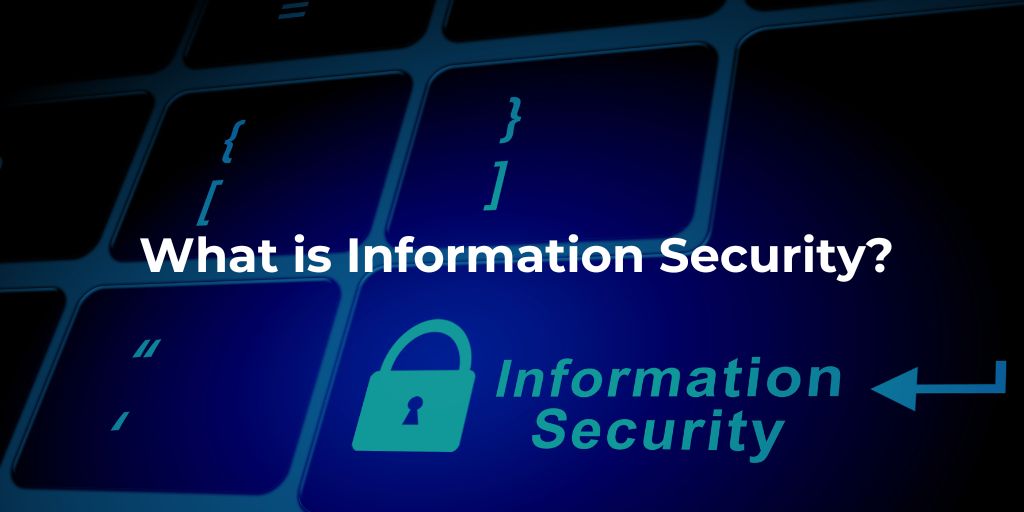Categories
Tags
Newsletter
Subscribe to the QRP International neswletter and get all the news on trends, useful contents and invitations to our upcoming events
Subscribe
In today’s complex, fast-paced business environment, information has become extremely valuable for enterprises worldwide, with success increasingly depending on robust information systems and advanced information technology.
Information security (InfoSec) refers to all the practices, principles and procedures needed to protect an organisation’s most valuable information, such as financial, confidential, personal or sensitive data, against unauthorised access, disclosure, use, alteration or disruption.
Information Security requires a holistic approach that encompasses technologies, policies, procedures and people as well as a continual improvement process to monitor, assess and adapt.
According to the three main principles of Information Security, sensitive data must be available only to authorised users, remain confidential and cannot be edited. These principles are essential in guiding organisations to integrate the correct technologies, policies and practices.
The three principles are also identified with the acronym CIA (Confidentiality, Integrity and Availability):
The principle of Confidentiality is set in place to prevent data access from unauthorised entities. A set of authorised users is identified and given access while all the other users are blocked from viewing and interacting with sensitive data. If an unauthorised user was to obtain access to protected data it would be called a “confidentiality breach”.
The principle of Integrity refers to ensuring that all data of an organisation is complete and accurate at all times. No additions or deletions are allowed by any users. Data should be updated exclusively to maintain its principles of completeness and accuracy.
The principle of Availability includes all the processes and policies put in place to ensure that data is always available when needed. This includes all the hardware and software measures that prevent barriers between the authorised users and the data they need to access (e.g. website going down, inaccessible database).
While not being one of the official principles, non-repudiation is an essential concept that is linked with Confidentiality and Integrity: no user can deny (repudiate) messages or transactions received and sent, because they require an authentication to be performed.
The terms Information Security and Cyber Security are often used interchangeably, even though they have a different scope.
Information Security is a set of practices, principles and procedures to protect all valuable information of an organisation (both digital and physical).
Cyber Security is a subset of InfoSec that is focused on digital information, protecting all digital assets from cyber threats.
A data breach can have a high cost for an organisation: from the loss of sensitive data, to the business downtime needed to fix the breach and the loss of trust from a client-base. In addition to this, sensitive information that is stolen or exposed, can limit an organisation’s profitability as it could contain company secrets and strategies.
The most common threats that Information Security processes have to overcome, can be divided in 5 main categories:
The implementation of a strong Information Security programme and procedures can support organisations in their relationship with consumers, building trust and reducing unauthorised access to sensitive data. The main advantages of the implementation of an Information Security programme are:
The demand for skilled Information Security management professionals is on the rise and an international certification can make you stand out in the competitive job market.
The CISA® certification (Certified Information Systems Auditor) is essential in the world of IT auditing as it focuses on audit, control, and assurance of information systems, a vital role in assuring that IT systems are safe, reliable and in line with international standards.
The CISM® certification (Certified Information Security Manager®) is aimed at professionals who aspire to be Information Security Manager and offers a stronger focus on the management and governance of Information Security.
Together, these certifications equip professionals with the skills necessary to protect information assets, manage risks, and ensure the integrity, confidentiality, and availability of information.
Both certifications are owned by ISACA®, a global community that advances individuals and organisations in their pursuit of digital trust. QRP International is an accredited training organisation (ATO) for CISA and CISM.
Discover how to continue your professional development journey in Information Security, visit our website or contact us!